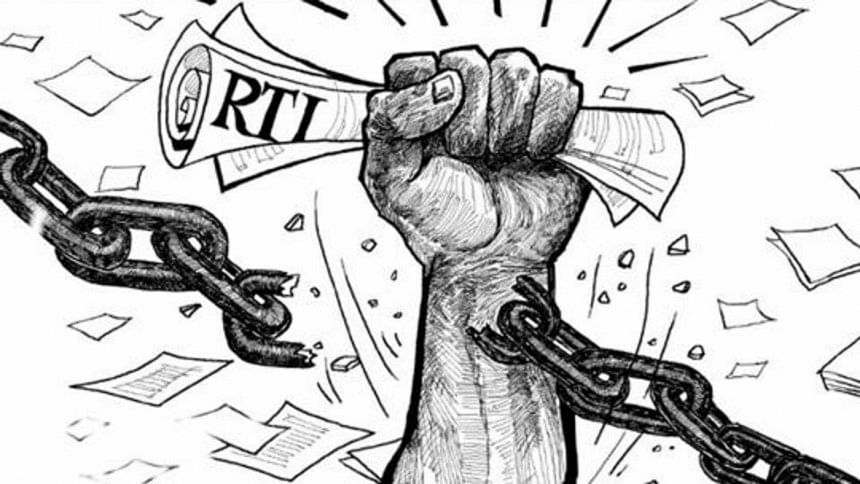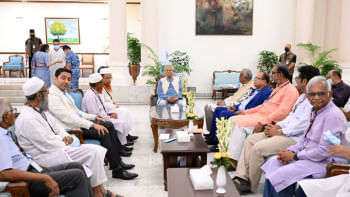Law needs RTI-defenders

The global excitement about Right to Information (RTI) appears to be on the wane. Instead of facilitating citizens' role to monitor public work by accessing official documents, governments are resorting to procedural and other hurdles to curtail the reach of the law. RTI enthusiasts and scholars who saw the law as an "impressive display of policy innovation at a global level", now see it more as "democratic window dressing." Secretive governance is striving to return.
Unless citizens appreciate the dangers confronting their RTI regimes seriously, the law is likely to end up as a paper tiger. We must recognise that since the primary objective of the law is to empower citizens against the state, we play the key role to safeguard its operations. We must also remember that governments have a legitimate interest to hide certain information from the public in the larger public interest and hence a normal tendency to resort to secrecy. We must, however, ensure that the limit set by the law is respected.
So, what are the angles through which we can fight a return to secretive governance?
Substantive provisions of the law: A constant tug of war exists in all administrative systems between public authorities and citizens as to what official information citizens must have access to. A basic principle is: "transparency is the rule and secrecy the exception." Openness, however, varies between states. Where the law does not meet the standards, citizens have the responsibility to strive for them and fight for their safeguard.
RTI laws vary in several respects. One, the ambit of the law is of crucial importance. In most countries, only entities that use public funds are included. Others include private bodies, e.g. businesses and corporations, if they serve public interest and are regulated by public laws and policies. Two, we should be clear as to the definition of the term "information". Greater clarity makes it easier for citizens to know what to seek. Three, we should understand the status of RTI law over other legislations. Does RTI law prevail over other laws, in case of conflict? Four, the range and extent of the "exemption clause", which provides for exemptions or exclusions of information from disclosure, is the heart of the law. RTI/FOI laws are best assessed by the limits they set on citizen's right to access information through exceptions. Bangladesh's law has one of the longest list of exemptions. Five, the quality and standing of the adjudicatory body, i.e., the Information Commission, the process of selection of its members and the independence it enjoys are of crucial importance.
To rank the quality of RTI/FOI laws globally, the Center for Law and Democracy, a Canadian NGO, has come up with indicators based on the above criteria. Among 122 countries it ranked, South Asian countries fare rather well. Afghanistan's law tops the list globally, with Sri Lanka in 4th position, India 7th, Maldives 16th, Nepal 21st, Bangladesh 26th and Pakistan 31st.
Bangladesh fared badly largely because of its long list of exemptions. There is clearly a need for improvement here which can be achieved only if more citizens discover the deficiencies through practice and seek their removal. For that to happen, the category of users must include educated and socially aware classes, which is not the case yet in Bangladesh.
Procedural aspects of the law: Even a generous law may be difficult to implement because of unwieldy procedures. Failure to follow them allow public authorities to reject requests. The law in Bangladesh requires RTI requests to be addressed to specifically named designated information officers. Problems arise frequently when the officer is not appointed or has been transferred and not replaced. Other procedural impediments compound the problem.
Statistics show that our Information Commission disposes off 48 percent of the complaints it receives without any hearing because of various deficiencies in the application process. On the other hand, 38 percent of all applications and complaints are rejected because of procedural lapses. Unless these impediments are removed, the potential of the law cannot be fully achieved.
Adjudicatory mechanism: The responsibility to resolve disputes between citizens and public authorities on the application of RTI law normally bestows upon independent bodies like the Information Commission. To play its role properly, the Commission is required to apply the law in a manner that helps citizens fulfil their responsibilities under the law and to help the government safeguard its legitimate interest to keep certain information under the lid for greater public interest. But often Commissions fail to balance the two.
As seen above, the strict adherence of Bangladesh's Information Commission to cumbersome rules and its penchant for narrow interpretation of the law often frustrate the resolve of the users. By their actions, decisions and pronouncements, Information Commissions normally make their position on the law known to public officials and citizens alike. In Bangladesh, RTI users often complain about the indulgence of the Commission towards recalcitrant public officials and its disinterest to impose the prescribed penalty. From 2010 to 2018, only 1.6 percent of the errant officials have been penalised.
The lack of mechanism to follow-up on the decisions of the Commission can be another matter of serious concern. This is the case in Bangladesh too. Statistics show that in 17 percent of positive decisions of the Information Commission for disclosure, the complainants had to reapply, as the decisions were ignored. Unless social elites and civil society leaders lend their voice, ordinary citizens, who are the main users of the law today, can do very little to change the situation.
Restrictive practices and interpretation of the law: The long list of exemptions from disclosure is not the only factor that diminishes the quality of the law in Bangladesh. An added problem is broader or narrower interpretation, as the case may be, of the exemption clauses and other provisions of the law by public authorities and the Information Commission alike. 35 percent of RTI requests in Bangladesh are denied on the basis of Section 7 of the Act, which contains the exemptions. In some countries, Information Commissions are more likely to accommodate a request than to deny it, if it serves public interest. In many countries, however, the Commissions tend to resort to restrictive practices to deny disclosure.
To avoid such tendencies, some RTI laws provide for a "public interest override" clause. Under this provision, Commissions may side for disclosure if they think that public interest would thereby be served, even if the law may permit denial. Some laws also provide for a "harm test" which allows disclosure of the requested information if it is unlikely to cause any harm to any protected interest under the law.
Unfortunately the Bangladesh law does not provide for such possibilities. And added to this deficiency, both public officials and the Information Commission are known to use the exemption clauses at ease to deny disclosure.
Role of the judiciary: One way to get some help to ensure proper application of the law would be to seek the help of the judiciary. In a few cases brought to the attention of the Bangladesh High Court, under its writ jurisdiction, the court has generally resorted to a pro-people interpretation of the RTI Act. Unfortunately, here too due to lack of attention from more empowered tiers of society, not many cases are being brought to it or a few that have been lodged are vigorously followed up.
There is a clear need for defenders of RTI law in Bangladesh.
Shamsul Bari and Ruhi Naz are Chairman and Project Coordinator (RTI section) respectively of Research Initiatives, Bangladesh (RIB).
Email: [email protected]

 For all latest news, follow The Daily Star's Google News channel.
For all latest news, follow The Daily Star's Google News channel. 



Comments